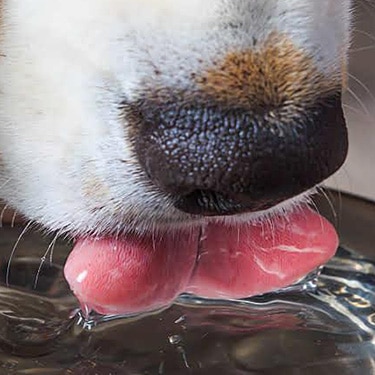
-
Find the right food for your petTake this quiz to see which food may be the best for your furry friend.Find the right food for your petTake this quiz to see which food may be the best for your furry friend.Featured productsAdult Dog Food
Hill's Science Plan Adult Multipack Wet Dog Food with Chicken, Beef & Turkey are complete premium pet foods for adult dogs from 1 year. Your dog will love these deliciously smooth and savoury minced loaves, formulated for balanced nutrition and overall health.
Shop Nowwith Chicken, with BeefHill's Science Plan Mature Adult Multipack Wet Dog Food with Chicken & Beef are complete premium pet foods for mature adult dogs from 7 years. Your dog will love these deliciously smooth and savoury minced loaves, formulated to deliver the appropriate amount of energy to support the needs of adult dogs.
Shop Nowwith Chicken, with BeefHill's Science Plan Puppy Multipack Wet Dog Food with Chicken & Beef are complete premium pet foods for growing puppies from weaning until 1 year old and for pregnant and nursing dogs. Your puppy will love these deliciously smooth and savoury minced loaves, formulated for balanced nutrition and overall health.
Shop NowFeatured products with Ocean Fish, Chicken
with Ocean Fish, ChickenTender chicken chunks in gravy for cats, with L-carnitine and fewer calories for ideal weight management. Packed with high-quality protein, omega-6s, and vitamin E for shiny fur and healthy skin.
Shop Now Mature Adult Wet Cat Food with Chicken
Mature Adult Wet Cat Food with Chicken
Tender chicken chunks in gravy for mature adult cats. Made with easy-to-digest ingredients, high-quality protein for lean muscle maintenance and antioxidant vitamins C+E for optimal health.
Shop Now Adult Wet Cat Food with Chicken
Adult Wet Cat Food with ChickenTender chunks in gravy for cats, with high-quality protein to maintain lean muscle. With vitamin E and omega-3s & -6s for healthy skin and balanced minerals to support healthy vital organs.
Shop Now -
Dog
- Dog Tips & Articles
-
Health Category
- Weight
- Food & Environmental Sensitivities
- Urinary
- Digestive
- Joint
- Kidney
-
Life Stage
- Puppy Nutrition
- Adult Nutrition
- Senior Nutrition
Cat- Cat Tips & Articles
-
Health Category
- Weight
- Skin & Food Sensitivities
- Urinary
- Digestive
- Kidney
-
Life Stage
- Kitten Nutrition
- Adult Nutrition
Featured articles Tips For Mixing Wet And Dry Pet Food
Tips For Mixing Wet And Dry Pet FoodDiscover tips for mixing wet and dry pet food to ensure balanced nutrition and variety for your pet. For comprehensive feeding advice, visit Hill's Pet UK.
Read More An Owner's Guide To Safe Water Sources For Pets
An Owner's Guide To Safe Water Sources For PetsEnsure your pet's hydration with our owner's guide to safe water sources for pets. For detailed tips on maintaining your pet's health, visit Hill's Pet UK.
Read More Virtual Vet Visits: What You Need to Know
Virtual Vet Visits: What You Need to KnowLearn the ins and outs of a televet appointment before you talk to a vet online.
Read More -


Itchy ears in dogs are a common reason for trips to the vet. The constant scratching and head shaking can drive you mad, not to mention your dog. Having itchy, sore ears is never pleasant, so it’s important to understand what to look out for and when you need to seek help. In this article, we’ll look at why your dog’s ears may be itchy and what you can do to get you both some very welcome relief.
Common causes of ear irritation in dogs
There are lots of things that can make your dog’s ears feel itchy. Often, dogs will get into a vicious circle of itching and scratching. They can inflict quite a lot of damage if the cause isn’t found and addressed early on. The main causes of itchy ears in dogs are:
Parasites
Foreign objects
Food allergies
Atopic dermatitis
Breed
Infection. Secondary infection due to the other causes of itchy ears can complicate matters further.
CM/SM or chiari-like malformation/syringomyelia
Let’s take a look at these in more depth.
Parasites:
All dogs pick up parasites at various times in their lives. It’s an inevitable part of being a dog and going out and about on fun walks. Fleas are the most common parasites, and they tend to prefer the head, neck and rear end as places to hang out. If your dog is head-shaking or scratching, fleas are the very first thing to rule out.
Dogs can also get ear mites, called Otodectes by vets, and another type of mite called Sarcoptes. Both of these can cause intense irritation in the ear and, in the case of Sarcoptes, also on the flap of the ear and in the axillae, which are like your dog’s armpits.
Ticks can also be a big problem, particularly in warmer climates and environments such as meadows and woodland. Ticks are opportunists and wait for a dog to brush past the undergrowth to climb on. This means the head and ears are commonly where they end up.
Foreign objects:
It’s surprisingly common for foreign objects like grass seeds – or foxtails as they are also known due to their bushy appearance – to get trapped in the ear. Dogs with furry, dangly ears, like spaniels, are the most likely candidates, but it can happen to any dog, particularly if your dog suddenly starts shaking their head or scratching at their ears after a walk. The barbs on grass seeds mean they go in only one direction when they get trapped in fur. As well as causing lots of ear problems, they can also penetrate paws and skin and cause untold problems when they start to migrate.
Food allergy:
Just as with atopy, food allergies in dogs can also cause skin symptoms like itchy ears, as well as gastrointestinal disturbances like diarrhoea. Food allergies are more common in some breeds of dog than others, such as boxers, Labradors and pugs.
Atopic dermatitis (atopy):
Atopy is an allergy to environmental elements like pollen, plants and dust mites. It causes itching in many parts of the body, including the ears. Some breeds like Labradors, golden retrievers, boxers and West Highland White Terriers are more prone than others.
Breed:
As mentioned, some breeds of dog are more prone to atopy and food allergy – and therefore itchy skin and ears – than others, but the shape, size and hairiness of different breeds’ ears also have a big impact. ‘Natural’ dogs tend to have erect or semi-erect ears. They have fine hairs around the entrance to help trap dirt and stop debris getting in, but the ear canals themselves are hair-free, open and well-aerated.
Spaniels and other breeds with very hairy ear flaps are more likely to pick up grass seeds. Anything that alters the environment in the ear canal will predispose them to different bacteria, inflammation and infection. Basset hounds and other dogs with very pendulous ears, shar-peis with ears that are clamped tightly to the head and breeds like poodles that have very hairy ear canals all have poor air flow and are prone to infection. When choosing a dog, always choose one with as natural an ear shape and proportions as you can.
Infection:
Both bacterial and yeast infections can cause painful inflammation and itching in the ears. If your dog has an ear infection, you may notice an unpleasant smell or a discharge coming from one or both ears. These infections are often secondary to the other primary causes but complicate matters and perpetuate the itch/scratch cycle.
Chiari malformation/syringomyelia (CM/SM):
Although this condition is uncommon in dogs in general, it is becoming increasingly common in some breeds, especially the Cavalier King Charles spaniel. It entails a mismatch between the skull size and the brain and may cause painful headaches and other symptoms. Some of these dogs appear to obsessively scratch their ears and neck, but it’s not actually a skin irritation at all; it’s neurological. If you have a King Charles spaniel and your vet can’t find a cause of ear or skin irritation, it may be worth considering if CM/SM is the cause.


Tasty Tips
How is the cause of itchy ears in dogs diagnosed?
There’s a well-known saying in veterinary and human medicine: ‘Common things are common’. It may sound obvious, but your vet will start by ruling out the most common and obvious things first.
General physical exam. Before even looking at your dog’s ears, your vet may want to do a full physical exam. They will be looking for signs of parasites like fleas and other generalised signs of skin problems such as bald patches and scabs. These can all be pointers to the cause of the itchy ears.
Otoscope exam. An otoscope is an instrument for looking into your dog’s ear canal with a light and a magnifying glass. Your vet will use this to check for obvious things like grass seeds, but also for ear mites, inflammation and infection. Sometimes, dogs are so frantic and uncomfortable that your vet may need to sedate them in order to safely carry out this exam.
Swab and culture. These will be used to identify bacteria or yeast infections.
Skin scrapes. These are performed to look for microscopic parasites like sarcoptic mange.
Allergy investigation. This may involve food trials or blood and skin tests for environmental allergies.
- MRI. This will be far down the list of tests and will be reserved for breeds prone to CM/SM after other causes of itchy ears have been ruled out.
How will my dog’s itchy ears be treated?
As you can imagine, the treatment for your dog’s itchy ears will depend entirely on the cause. Often, once a whopping grass seed has been plucked deftly from your dog’s ear canal, the relief is instant and everyone is happy!
However, other treatments may be needed and can be lengthy. These may include:
Cleaning. Often, dogs with itchy ears get a build up of wax and may have pus in their ears. If your vet gives your dog medicated ear drops, you may need to clean their ears first so that the drops can get to the skin and be effective. Your vet will demonstrate what you need to do and explain how often.
Medications. Anti-inflammatory, antibiotic or antifungal ear drops may be given, or even all three! Your vet may also prescribe oral antibiotics if drops are not going to be enough. Your dog may have an injection of an anti-inflammatory to give relief from the itching and break the scratch cycle.
Diet change. For dogs with food allergies and atopy, diet change can make a huge difference. Therapeutic diets for food allergy sufferers are curative for the vast majority of dogs. There are also diets available that have anti-inflammatory properties and even help restore the skin barrier function in atopic dogs. Your vet will be able to guide you to which diet is best for your individual dog.
Allergy relief. Dietary change, antihistamines or environmental management may be needed depending on what your dog is allergic to.
Parasite treatment. Depending on what parasites your dog has, your vet may prescribe drops, a spot-on treatment or medicated shampoos.
Never poke around in your dog’s ears or put anything in them without the say-so of your vet. You may damage their ears or hearing or exacerbate inflammation and cause more pain.
Can I prevent itchy ears in my dog?
There are some things you can do to try to help prevent ear problems in the first place:
If your dog has very furry ears, you can keep the hair clipped short, especially in the summer months when grass seeds are an issue. Try to get into the habit of checking your dog’s ears and paws after each walk to make sure seeds haven’t hitched a ride in the fur. If you see a seed heading into the ear canal, see your vet to have it removed with the right tools.
If your dog is an avid swimmer, they may have more ear problems because of the moisture. If you can gently dry their ears with some cotton wool after each swim, it may help.
Keep your preventative parasite control up to date.
Summary
If your dog starts showing signs of ear irritation, the best thing to do is see your vet as soon as possible. As we said, the treatment will vary depending on the underlying cause, but it’s best to seek prompt attention, as foreign objects and infections can quickly become quite serious and threaten your dog’s hearing. It’s better to be safe than sorry, and with any of these problems, the sooner you get treatment started, the better.
FAQs
Why is my dog scratching their ears all the time?
There are lots of things that can cause itchy ears in dogs. The most common are parasites, foreign objects like grass seeds, infections and allergies.How can I tell if my dog has an ear infection?
Infected ears are often dirty, inflamed and smelly. If ever you are worried about your dog’s ears, see a vet as soon as you can.Can food allergies cause itchy ears in dogs?
Yes, both food allergies and environmental allergies (atopy) can cause itchy ears in dogs.What’s the best treatment for itchy ears in dogs?
This will depend on the cause. Never try to treat your dog’s itchy ears without seeing your vet. You can easily cause pain and may make things worse.How can I prevent ear problems in my dog?
Keep your dog’s ear fur trimmed short, especially in summer. Dry inside your dog’s ears gently with cotton wool if they go swimming. Keep parasite treatment up to date.
Reviewed by Dr. Hein Meyer, DVM, PhD, Dipl-ECVIM-CA and Dr. Emma Milne BVSc FRCVS.


One of our staff authors prepared this article for you
Related products
Hill's Science Plan Puppy Multipack Wet Dog Food with Chicken & Beef are complete premium pet foods for growing puppies from weaning until 1 year old and for pregnant and nursing dogs. Your puppy will love these deliciously smooth and savoury minced loaves, formulated for balanced nutrition and overall health.

Hill's Science Plan Hypoallergenic Adult Wet Dog Food with Salmon is a complete premium pet food for all adult dogs from 1 year. This savoury tinned loaf is specially formulated for dogs with delicate skin and stomachs. It features a single novel animal protein source and is grain-free.
Hill's Science Plan Mature Adult Multipack Wet Dog Food with Chicken & Beef are complete premium pet foods for mature adult dogs from 7 years. Your dog will love these deliciously smooth and savoury minced loaves, formulated to deliver the appropriate amount of energy to support the needs of adult dogs.
Hill's Science Plan Adult Multipack Wet Dog Food with Chicken, Beef & Turkey are complete premium pet foods for adult dogs from 1 year. Your dog will love these deliciously smooth and savoury minced loaves, formulated for balanced nutrition and overall health.
Related articles

Just like every other pet owner, vets are responsible for giving their pets the best possible nutrition, exercise and care needed to keep them healthy and happy.

Discover the causes, signs, and treatments of kidney disease in dogs and find methods of supporting your dog's kidney health. Learn more at Hill's Pet UK.

Wondering why your dog is constantly itching? Read on to discover common causes, such as allergies or parasites, and find out how you can help your dog.

Put your dog on a diet without them knowing
Our low calorie formula helps you control your dog's weight. It's packed with high-quality protein for building lean muscles, and made with purposeful ingredients for a flavourful, nutritious meal. Clinically proven antioxidants, Vitamin C+E, help promote a healthy immune system.
Put your dog on a diet without them knowing
Our low calorie formula helps you control your dog's weight. It's packed with high-quality protein for building lean muscles, and made with purposeful ingredients for a flavourful, nutritious meal. Clinically proven antioxidants, Vitamin C+E, help promote a healthy immune system.

